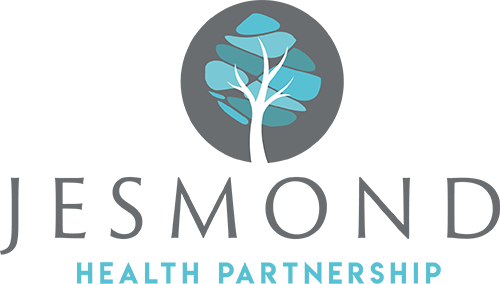Meet and Move: Helping those at risk of Frailty or Isolation
In Jesmond and Lower Gosforth PCN, we have a network Physiotherapist to work with patients at our four GP practices.
Rachel Cowey joined the network in October 2020, having worked extensively as a musculoskeletal physiotherapist after completing her BSc in physiotherapy.
Rachel’s role within the network is to use her physio expertise to improve the overall health and well-being of the older members of our community who may be at risk of frailty or social isolation.
Frailty and Isolation
Rachel works with patients aged 65 and over at any of the four practices in the Jesmond Lower Gosforth network who could be at risk of frailty or becoming isolated.
There are several different physical or mental health reasons for people becoming at risk. Recent examples include those recovering from falls, have osteoarthritis or have become generally deconditioned, as well as people with depression and anxiety.
Often, the less active we are, the more challenging it is to get active again, which can cause things to worsen, creating a cycle.
A key element of many PCN services is making them personal and tailored to patients’ needs. It’s no different with Rachel, who places a lot of value on understanding people’s current situations, backgrounds, and ambitions.
Meet and Move
With the help of our Social Prescribing Link Workers, Rachel runs the Meet and Move Support Groups, which consist of an exercise class followed by a social session. The sessions are a mix of both formal educational and informal social gatherings.
The aim is to encourage people to become active through structured, supervised strength and conditioning training in a fun, welcoming, safe environment.
The educational side covers the benefits of exercise and healthy living, like nutrition, hydration and mindfulness, and provides information and tools to help people live active, healthy lifestyles at home.



It’s also a chance to socialise with other participants and build new relationships with people to help combat social isolation leading to anxiety and depression.
“Exercise can be hard for people, so it’s super important to make it fun, welcoming and engaging! I do my very best to ensure each session is as good as the next.”
Rachel Cowey, Physiotherapist
What Participants do
The ‘move’ part is, of course, different from person to person, depending on their needs, but the overall aim is to improve balance, strength, endurance, flexibility and physical coordination.
A physiotherapy test called ‘Time Up and Go’ is used to see how people progress. It records the time taken for someone to stand up from a chair, walk to a mark 3 metres away, turn round and return to a seated position.
On average, participants can improve their scores by over 20% in around two months.
What Participants say
“I lost my wife in November and this is something entirely different from my wife, I look forward to it. If I’m feeling a bit low, as soon as I get here, my mood lifts and I find that the exercises and meeting new people is very good for me.”
“This class is the high point of my week. I love it! I love that someone cares. Thank you!”
“This is such a rewarding hour: exercise, good positive encouragement. Happy, social coffee with convivial conversation with members of the group.
How to take part
If you or someone you care for is interested in Meet and Move, you can ask any member of GP practice staff to refer you.
Referrals go to our Social Prescribing team in the first instance, who will see if there are other social or wellbeing issues that they can help with.
Once referred, Rachel will arrange an initial assessment to understand how best she can help.
People must take part in the exercise classes safely, so some health conditions, particularly problems with the heart or blood pressure, might mean Meet and Move isn’t appropriate.
